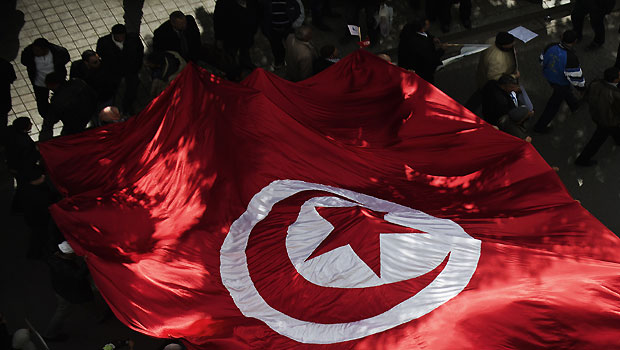Some observers of the Tunisian political scene think that the country will experience a dramatic change as a result of the elections scheduled for the end of the year. However, many of those familiar with the details of the political scene in Tunisia since the time of the revolution—particularly following the elections of October 23, 2011—do not share the same opinion. Nevertheless, we have begun to see a number of changes in Tunisian politics, especially since the election of the Tunisian Constituent Assembly and the formation of an elected government.
What concerns us most is the fact that parties are attempting to form political blocs, indicating that the forthcoming elections will be contended by electoral alliances rather than by isolated parties, as was the case in the last elections. This is something that led to the Ennahda Movement’s overwhelming victory, controlling approximately 40% of parliament.
We have also seen the formation of a number of other electoral alliances, including the Popular Front—which is made up of more than 10, mostly Leftist, parties—and the Union pour la Tunisie (Uni*t)—comprised of five parties, most prominently by the Tunisian Call. In addition to this, other, less powerful, blocs have been formed, such as the Constitutional Assembly led by Kamel Morjane. However, what remains to be said is that these blocs suffer from acute internal crises which will explode even before the elections. Perhaps following this, these blocs might reform themselves based on new criteria.
On the other hand, Ennahda has started to entertain the possibility of running for the next elections in the form of an electoral alliance with the current troika. It is not unlikely that other parties would join this alliance, especially if partners reach a consensus on the constitution and other issues.
Ultimately, the whole thing depends on two important issues: first, the names that the parties will put forward to stand for the presidential elections, and, second, the nature of the election law governing the forthcoming legislative elections.
As far as the first point is concerned, the opposition’s incapability of getting behind a single presidential candidate is clear. Moreover, parties are expected to each put forward candidates for the first round of elections, which represents a genuine challenge to the electoral alliances that have been formed. As for the legislative elections, parties taking part in the national dialogue—which is being sponsored by the president and aims to reach a consensus facilitating the completion of the constitution—tend to agree on an electoral system similar to the one adopted for the October 23 elections. This is natural, especially considering that the vote-counting system suits small parties, and perhaps reduces Ennahda’s election chances.
Although this electoral system will encourage the formation of electoral blocs, the vote-counting system will encourage nominations and will appreciate the ambitions of small parties and independent candidates. This means that the situation in the next parliament will not be very different from the situation in the Tunisian Constitutional Assembly in terms of representation.
There are clear indications that the state of helplessness being suffered by the opposition may continue. This is something which has become obvious since former prime minister Beji Caid El-Sebsi announced his presidential candidacy, which seems based more on public relations than reality, particularly given that he is above the age limit for presidential candidates that has been put forward in several constitution drafts. Sebsi’s nomination could be read as a part of a political plan to maintain a degree of harmony within the Tunisian Call movement. However, this announcement had an immediate, negative impact on the alliance that Sebsi had formed within the framework of Uni*t, as Ahmed Najib Chebbi is also determined to run for presidency.
On the other hand, the Popular Front is facing difficulties, particularly between the Workers’ Party and the Democratic Patriots’ Movement. The two cannot agree on the name of a candidate. No one is certain whether Tunisian Workers’ Communist Party leader Hamma Hammami will be the front’s candidate or not. Many names will be put forward arbitrarily when registration begins, leading to votes being wasted again and wedges being driven between the allies of today—and all of this prior to the elections.
You can read the counterpoint to this debate here.
